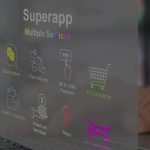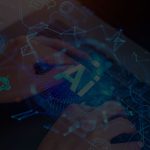Vaccinating the organization with trust in the times of COVID-19
COVID-19 has brought with it a disruption of the non-digital kind. By sheer co-incidence (prescience?), a team of disaster response and military experts conducted a two-day war-game simulation at Johns Hopkins University late last year. It was called Urban Outbreak 2019.1 The results of the simulation showed we were not prepared for a pandemic. Most players, the report on the simulation concluded, struggled with “ambiguity”. For HR professionals, this holds a major clue to what is coming their way: As keepers of the culture of their organizations, and guardians of the well-being of employees, they will have to experiment with solutions instead of relying on hard data. In other words, they will have to live with ambiguity and uncertainty and yet learn to adapt, use an intuitive compass to connect the dots and use tech to be nimble.
All organizations are social enterprises with formal and informal networks. Effectiveness of these networks acts as an accelerator for enterprises. Organizations’ response to COVID-19 will test the tenacity for employees, customers and communities at large. In this context, it will be important for HR professionals to stop leaning on their credentials and put their innate competencies to the test: If you are an HR professional, rise—you are about to give the single-most important test in your lifetime.
HR can be the source of a genuine and powerful response to the question, “How should the employee experience be?” HR’s most urgent priority now is to think realistically, think fast and deliver value by establishing trust in the actions of organizational leaders. These are exceptionally testing times to do this. Most employees are not physically present and are mentally distracted. We are no longer in a position to read their faces, their non-verbal cues, address the invisible fears, anxieties and uncertainties. HR must therefore quickly unlearn and re wire themselves to play the role of trusted advisors for leaders and line managers – to be able to sense, measure and, quite literally, show what employees are going through and how they are responding to the interventions to know the effectiveness.
The future of a productive “work constitution” will be anchored around managers with leaders taking centre stage as role models. Integration to work productivity and balancing priorities will be key – be it physical, emotional or mental well-being. Workplaces will truly become a powerhouse to navigate mind maps, an integration hub to augment the human potential and THAT will be a differentiator. As HR professionals, we have to bring in design thinking in the way we approach problem statements, evaluate possibilities and potential fungibility of solutions.
HR specialists will be required to experiment with skills fungibility in these testing times. Situation will demand us to be able to move into areas that are not central to our core competencies, become cross-functional and be able to evaluate and flag employee emotions quickly.
Leadership, unless completely self-aware, may also begin to project its own doubts and worries, further pushing employees into the vortex of anxiety. This is the time for HR professional and leaders to strengthen their emotional connect, not look for too much data and to keep it simple. The time for data will come. At this moment, it is more prudent to have continuous conversations with employees, partners and suppliers, and find ways to rebuild and renew the circle of trust.











